Often referred to as burnout's less-talked-about cousin, rust-out happens when people stagnate personally or professionally. Unlike burnout, which comes from doing too much, rust-out happens from doing too little - when our potential or talent isn't being used enough. People dealing with rust-out aren't just less productive - they've lost the will to be productive.
People with rust-out are normally bored in their roles. While boredom in and of itself is not a bad thing (and in small doses can be great for creativity), continued boredom is Not Good. This makes complete sense – as workers we want to see value in our role, a sense of purpose and of achievement. Not surprisingly, the consequences of burnout include disengagement, quiet quitting, and poor mental health.
Interestingly, rust-out often happens when people feel ignored by - or invisible to - their leaders. The antidote to rust-out therefore is to have leaders who are good communicators, active listeners, and empathetic champions.
So what can we do to prevent corrosion in the workplace (pun intended - sorry, couldn't help it!)?
Want to read more?
Sign in below if you're a Revolutionary (member).
Not a member yet?
Join in seconds! Just $10/month (+ any tax).
Cancel anytime.
Be a revolutionary and join now










